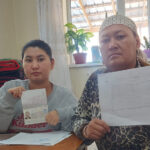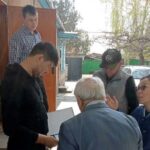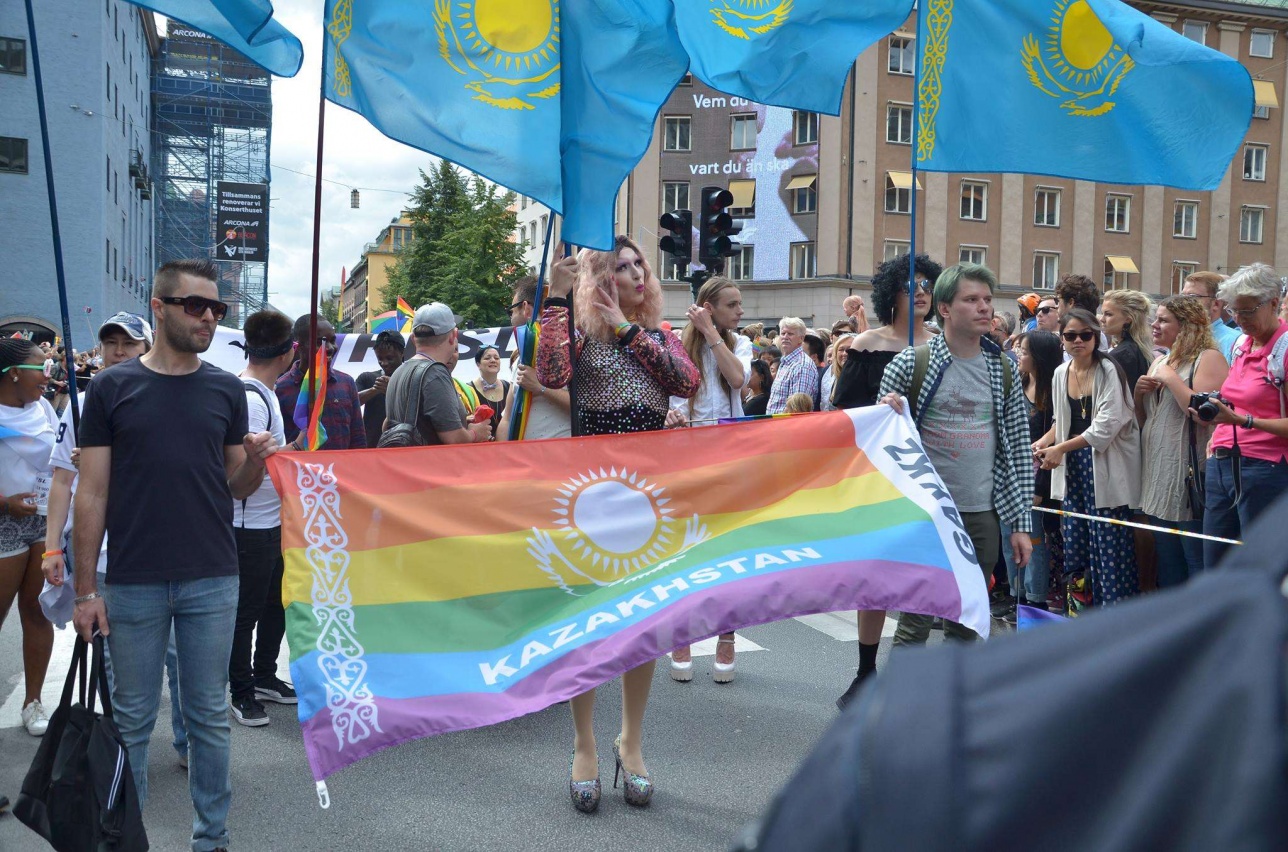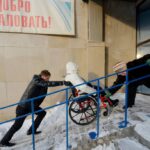Uzbek Protestant pastor Makset Djabbarbergenov was released from prison in
Three months after he was detained on an extradition request from
Meanwhile, on 8 November the United Nations (UN) Committee Against Torture received the official Kazakh government response to its June finding that
The UN Committee Against Torture found in November 2007 that the use of torture by state officials in
Askhat Primbetov, head of the Extradition Division of the International Co-operation Department at
UNHCR facilitation
Djabbarbergenov’s release from prison and resettlement in
Similarly welcoming Djabbarbergenov’s release from prison and departure from
However, Dzhivaga pointed out that in his view Djabbarbergenov qualified as a refugee in
Freed from prison
Djabbarbergenov was arrested in Almaty on 5 September and on 7 September a court ordered his detention for 40 days while the extradition case was considered. This period was extended on 15 October and again on 5 November while further documentation was awaited from the Uzbek General Prosecutor’s Office. Throughout his three-month detention, he was held in Almaty’s pre-trial detention prison.
The Uzbek authorities’ charge sheet said Djabbarbergenov was charged under Uzbek Criminal Code Article 229-2 and Article 244-2, Part 1. Article 229-2 bans “teaching religious beliefs without specialised religious education and without permission from the central organ of a [registered] religious organisation, as well as teaching religious beliefs privately”, and carries a maximum term of three years’ imprisonment. Article 244-2, Part 1 bans “creation, leadership or participation in religious extremist, separatist, fundamentalist or other banned organisations”, which is punishable by five to 15 years’ imprisonment (see F18News 29 October 2012 http://www.forum18.org/Archive.php?article_id=1760).
However, on 4 December – just before the latest detention period was due to expire – the Kazakh authorities allowed the UNHCR to collect Djabbarbergenov from the prison and take him directly to Almaty airport. “One prison guard told Makset as he was leaving the prison that Uzbek embassy officials were there to collect him,” one of Djabbarbergenov’s friends told Forum 18. “He was worried, but then saw the UNHCR officials and was relieved.”
He was reunited with his wife and children at the airport. The family took only the luggage they could check in and carry on the plane. About twenty members of Djabbarbergenov’s church in Almaty gathered at the airport to see the family off.
“UNHCR’s security was tight,” the friend continued. “Although border guards consulted for some time looking at Makset’s travel document before letting him through, the UNHCR stayed to see him through.” Given
“Makset wants to come back here, but it’s unclear when he will ever be able to,” the friend told Forum 18.
Hunted by
The 32-year-old Djabbarbergenov fled his home region of Karakalpakstan in north-west
Djabbarbergenov settled in Almaty and sought refugee status with the UNHCR. The UNHCR’s Almaty office recognised in writing his and his family’s status as refugees in February 2008. However, in 2011 the Kazakh authorities denied them refugee status, a finding they tried to challenge through the courts.
The Supreme Court in Astana has still not ruled on Djabbarbergenov’s final appeal against the denial of refugee status. “They claim they have lost the case,” Dzhivaga told Forum 18. “This has happened in other such cases.”
Government responds to UN
On 1 June, the UN Committee Against Torture found that Kazakhstan had violated human rights obligations by extraditing to Uzbekistan a group of 29 Muslim refugees and asylum seekers in 2011 (document reference CAT/C/48/D/444/2010). The Committee noted that the men were detained as soon as they arrived back in
The 8 November official Kazakh government response – with information prepared by Kazakhstan’s General Prosecutor’s Office – claimed that between 3 and 14 August, Kazakh diplomats had interviewed 18 of those extradited back to Uzbekistan, all of them now in prison.
“None of the visited convicts indicated to have been subjected to torture, unlawful measures of physical and moral pressure or other impermissible methods of investigation,” the UN summarised the Kazakh response as claiming. “All of them were assigned ex officio lawyers and could retain lawyers privately. None of them complained about the conditions of detention, the food or the medical care provided.” It added that “upon request by the Kazakh diplomatic service, medical examinations of the 18 complainants were carried out and no signs of beatings or torture were disclosed”. The Kazakh government submitted what it said were statements to the UN Committee attesting to this signed by the prisoners.
The Kazakh government, citing officials from
“The Committee Against Torture will consider at its next session in May 2013 whether it is satisfied with the government response or not,” the Committee told Forum 18 from
Refugee Law concerns
Human rights defenders, including Dzhivaga, have long been concerned about provisions of
Article 12, Part 5 of the Law requires refugee applications to be rejected “if there is a significant basis to suppose that the individual participates or has participated in the activity of terrorist, extremist and banned religious organisations, functioning in the country of which the individual is a citizen or in the country from which they have arrived”.
Similarly, Article 13, Part 5 requires refugee status to be removed if an individual “has been sentenced for participating in the activity of terrorist, extremist and banned religious organisations”.
Dzhivaga insists these and other provisions of the Refugee Law are not in compliance with the 1951 UN Refugee Convention. He points out that in countries like
“This is not acceptable, but unfortunately the government shows no willingness to change this,” Dzhivaga lamented.
SOURCE:
Forum 18 news service
www.forum18.org/Archive.php?article_id=1777
















